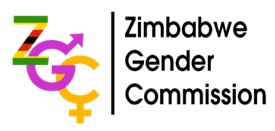Zimbabwe Gender Commission Commemorates World Toilet Day – 19 November 2024
The Zimbabwe Gender Commission joins the global community in commemorating World Toilet Day 2024 under the theme “Toilets: A Place for Peace.” This year, the Commission stands in solidarity with millions of women and girls around the world, recognizing the critical gender issues surrounding access to water and sanitation. Women and girls are disproportionately affected by inadequate sanitation, as they need to use toilets more frequently than men during menstruation cycles yet often face limited access. A safe, private toilet is not just a matter of hygiene; it is a vital space for privacy, dignity, and safety.
Sanitation is a fundamental human right, enshrined in Zimbabwe’s Constitution, which guarantees the right to gender equality and non-discrimination (Section 56), education, (Section 75) and health (Section 77) all of which are closely tied to access to clean, safe toilets. Despite this, billions of people worldwide, including 3.5 billion without safely managed sanitation and 419 million still practicing open defaecation, are denied this basic necessity. In Zimbabwe, open defaecation remains a significant challenge, with an estimated 17.31% of the population lacking access to proper sanitation services as of 2022, according to the World Bank.
For women and girls, the absence of safe toilets can have devastating consequences. In rural areas, where sanitation infrastructure is particularly scarce, they face risks of gender-based violence when forced to defaecate in unsafe, unsanitary conditions. The lack of private, secure toilets further exacerbates issues of health and well-being, with implications for education, work, and community participation. The prevalence of open defaecation contributes to the spread of diseases like cholera, which disproportionately affects women and children.
The Zimbabwe Gender Commission calls on the Government of Zimbabwe to prioritize investment in water, sanitation, and hygiene (WASH) infrastructure, particularly in rural areas, to ensure that women and girls alongside men and boys, have access to safe and private sanitation facilities. The Commission urges faster action to achieve Sustainable Development Goal 6, which targets universal access to safe sanitation by 2030. Accessible and secure toilets are not only a basic human need—they are essential for empowering women, improving public health, securing human dignity and promoting gender equality.
Let us all work together to ensure that safe, dignified toilets are available for every Zimbabwean, regardless of gender or location.
For Gender Equality
Download statement: World Toilet day


